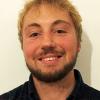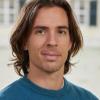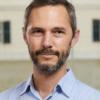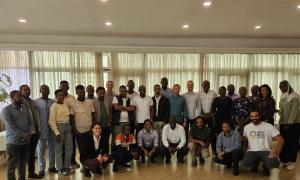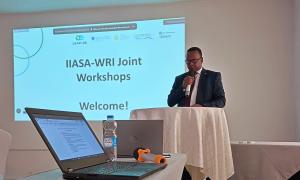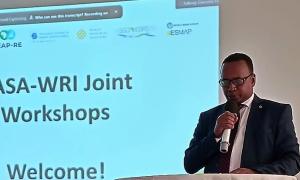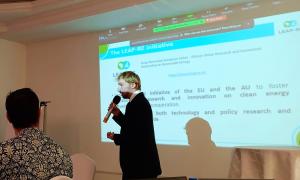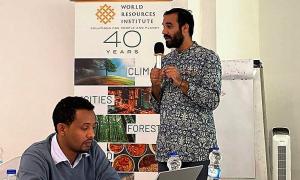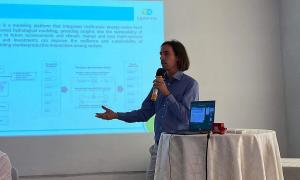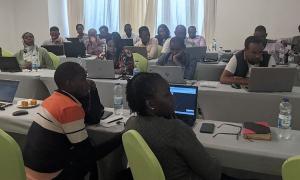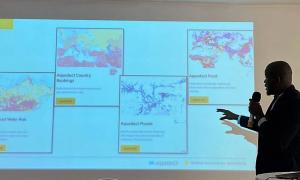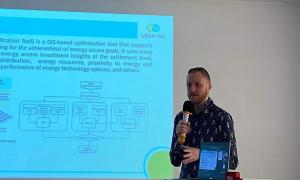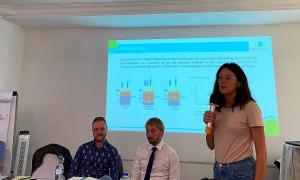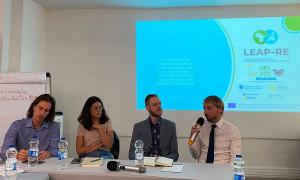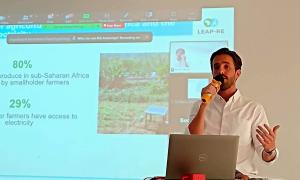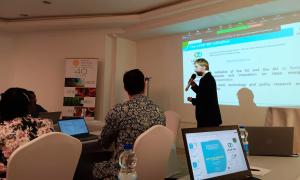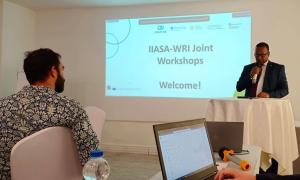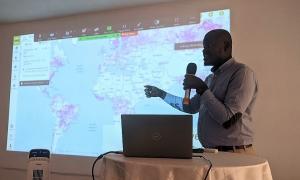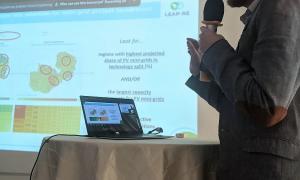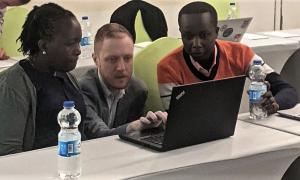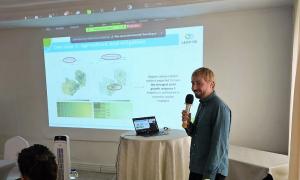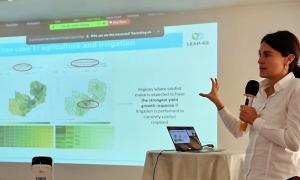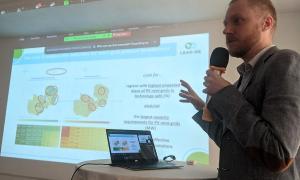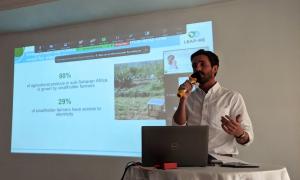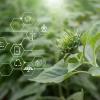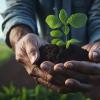
A workshop on the water-energy-land nexus jointly organized by IIASA and the World Resources Institute in Addis Ababa, Ethiopia, brought together 30 researchers and practitioners from 14 African countries to deliberate on equitable development in rural Africa.
In a collaboration aimed at fostering equitable development in rural Africa, IIASA researchers Adriano Vinca and Giacomo Falchetta from the LEAP-RE RE4AFAGRI project joined forces with the World Resources Institute (WRI) to arrange a week-long joint workshop focusing on tools for planning, scenarios, and policy analysis of the water-energy-land nexus. The joint workshop, which took place in Addis Ababa, Ethiopia, brought together 30 researchers and practitioners from 14 African countries. The event was opened by H.E. Dr. Sultan Woli, State Minister of the Ethiopian Ministry of Water and Energy.
The different sessions on the first two days introduced in-person and online participants to ongoing data and model-based work for water-energy-land-food nexus assessment, with a specific focus on both public decision-making and private system developers and investors. This included a keynote talk by the World Resources Institute on Monday, 16 October, demonstrations of Global Forest Watch and the Energy Access Explorer, and a demonstration of the RE4AFAGRI modeling platform. A networking event including local experts form Addis Ababa concluded the first day’s activities for in-person participants. Online participation for the first two days exceeded 125 registrants.
“The joint workshops have been a key objective since the RE4AFAGRI project’s inception to ensure that the best research methodologies and insights using open-source models and data are extended to local researchers and practitioners working across sub-Saharan Africa,” said Giacomo Falchetta, trainer and coordinator of the workshops and a researcher in the IIASA Energy, Climate, and Environment Program.
Days 3-5 were dedicated to hands on training on a range of quantitative modeling tools related to the water-energy-land-food nexus. Training was split into two tracks focused on energy and nexus issues, with more in depth tuition on open-access models in those themes.
The organizing committee worked closely with the secretariat of the Science Granting Councils Initiative (SGCI) as a representative of IIASA’s Sub-Saharan Africa Regional Member Organization, who helped to publicize the events and sponsored the attendance of participants. The World Bank Energy Sector Management Assistance Program (ESMAP) was also involved in training activities on rural electrification and generously sponsored hotel accommodation for participants.
“The workshops are also about building a community and network of experts across sub-Saharan Africa who will develop capacity within their organizations and countries in coming years. We have very much enjoyed working in partnership with, and are grateful for the support of our hosts WRI, the SGCI, and World Bank ESMAP,” commented Edward Byers, a coordinator of the workshops and a senior researcher in the IIASA Energy, Climate, and Environment Program.
These workshops were part of the RE4AFAGRI project's overarching mission to empower local stakeholders with the knowledge and tools necessary to shape policies and strategies that promote balanced and inclusive growth. The success of the workshops lay not only in their informative content, but also in their ability to trigger action. Attendees were inspired to rethink traditional approaches to resource management and devise innovative solutions tailored to the unique contexts of rural Africa. The workshops facilitated the creation of cross-disciplinary networks, enabling professionals from diverse backgrounds to collaborate and pool their expertise, thereby amplifying the potential for impactful change.
